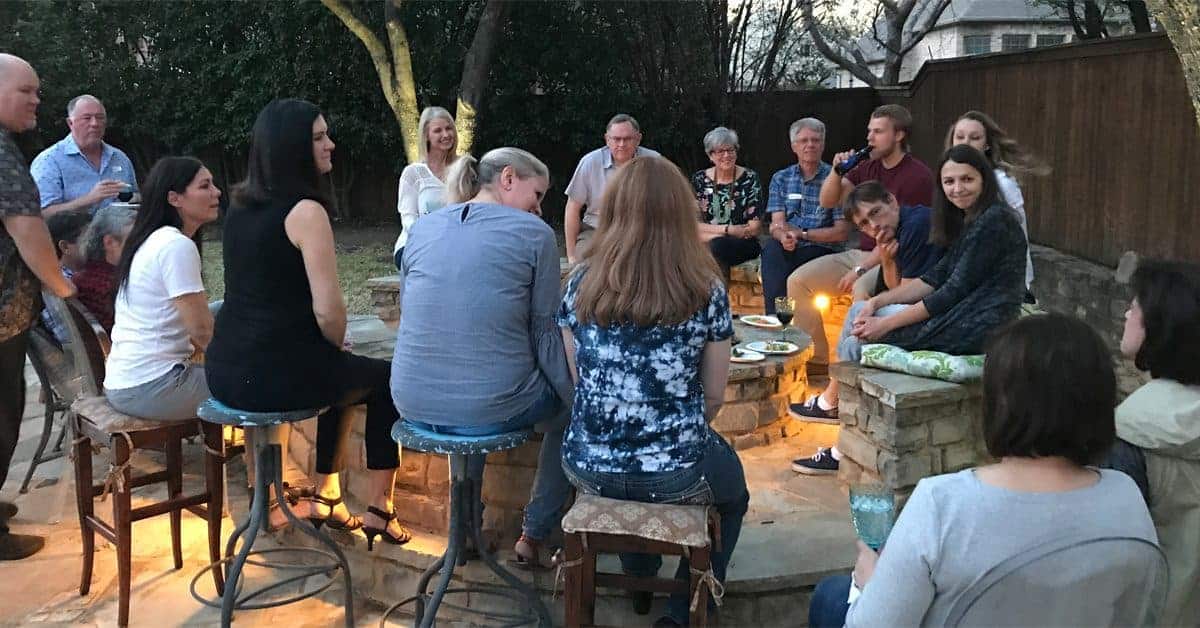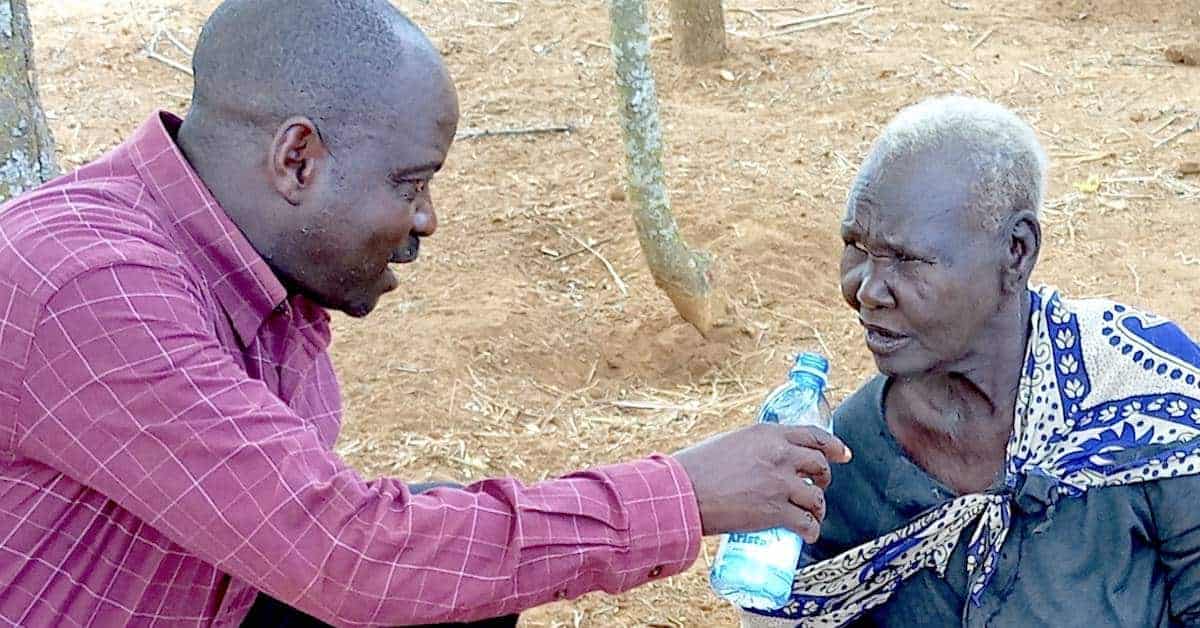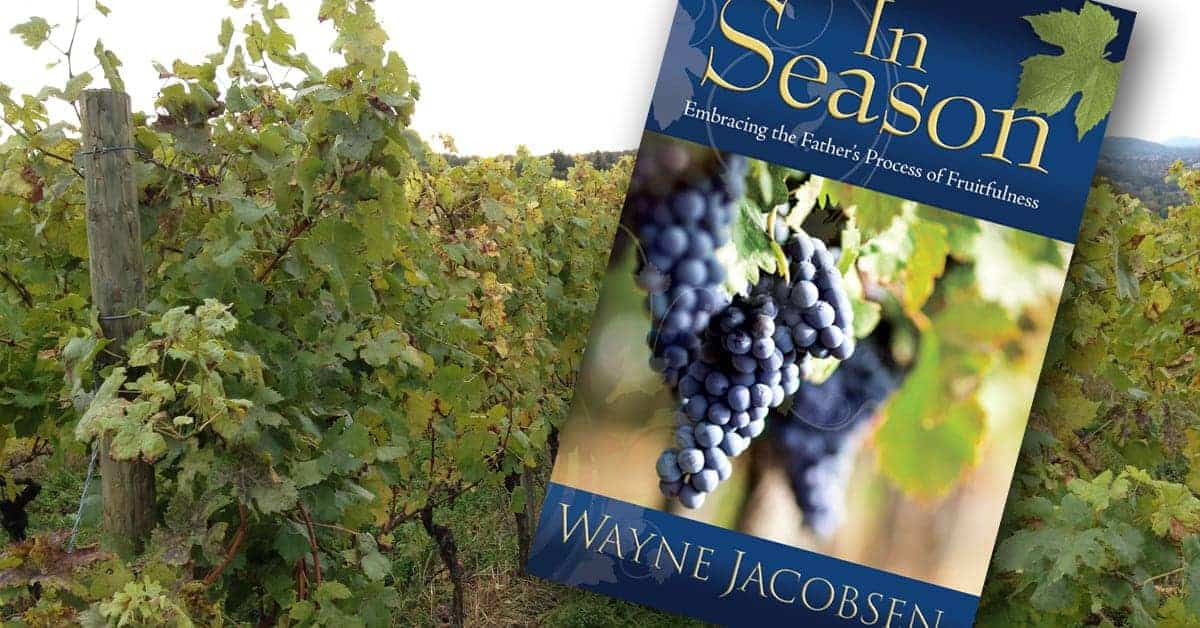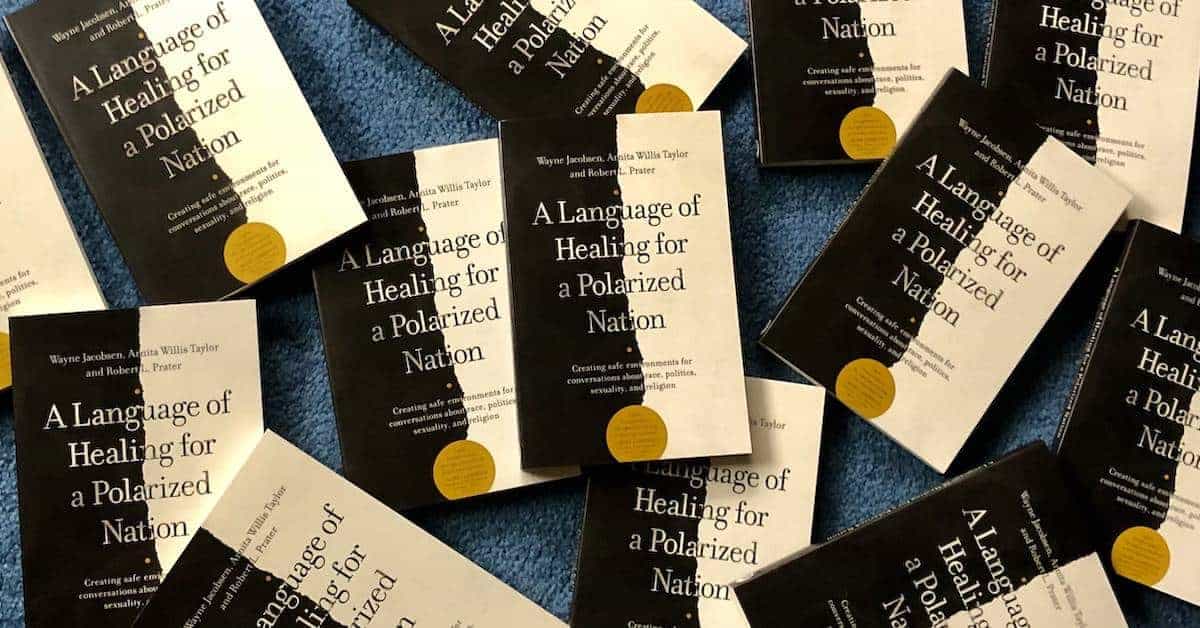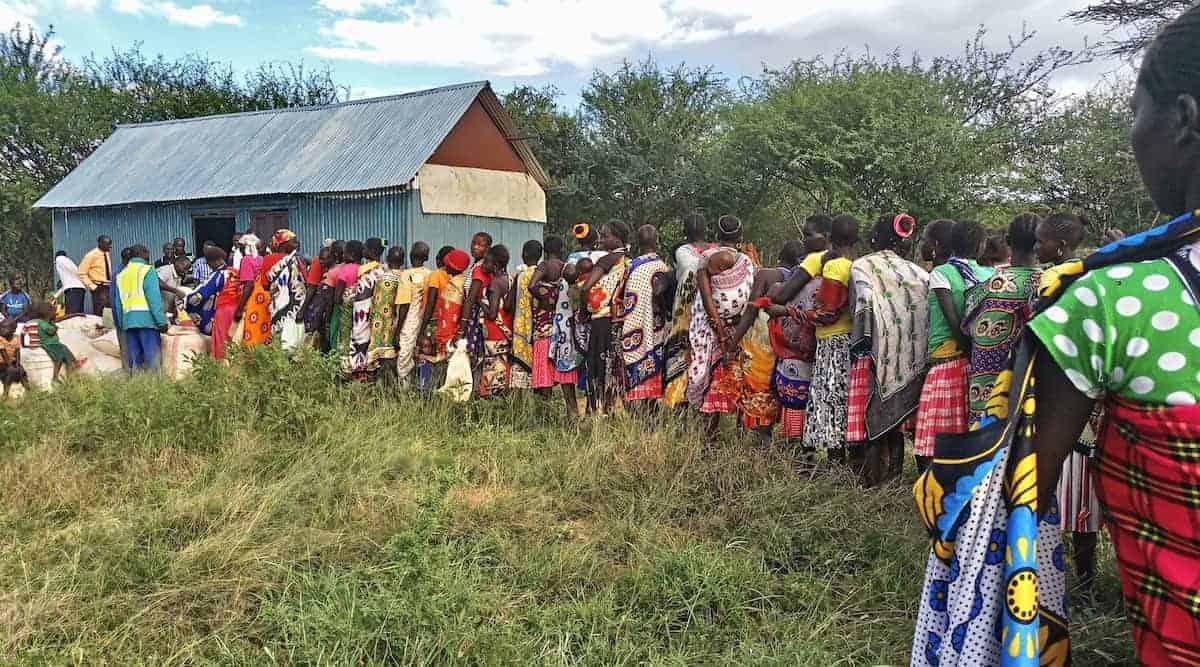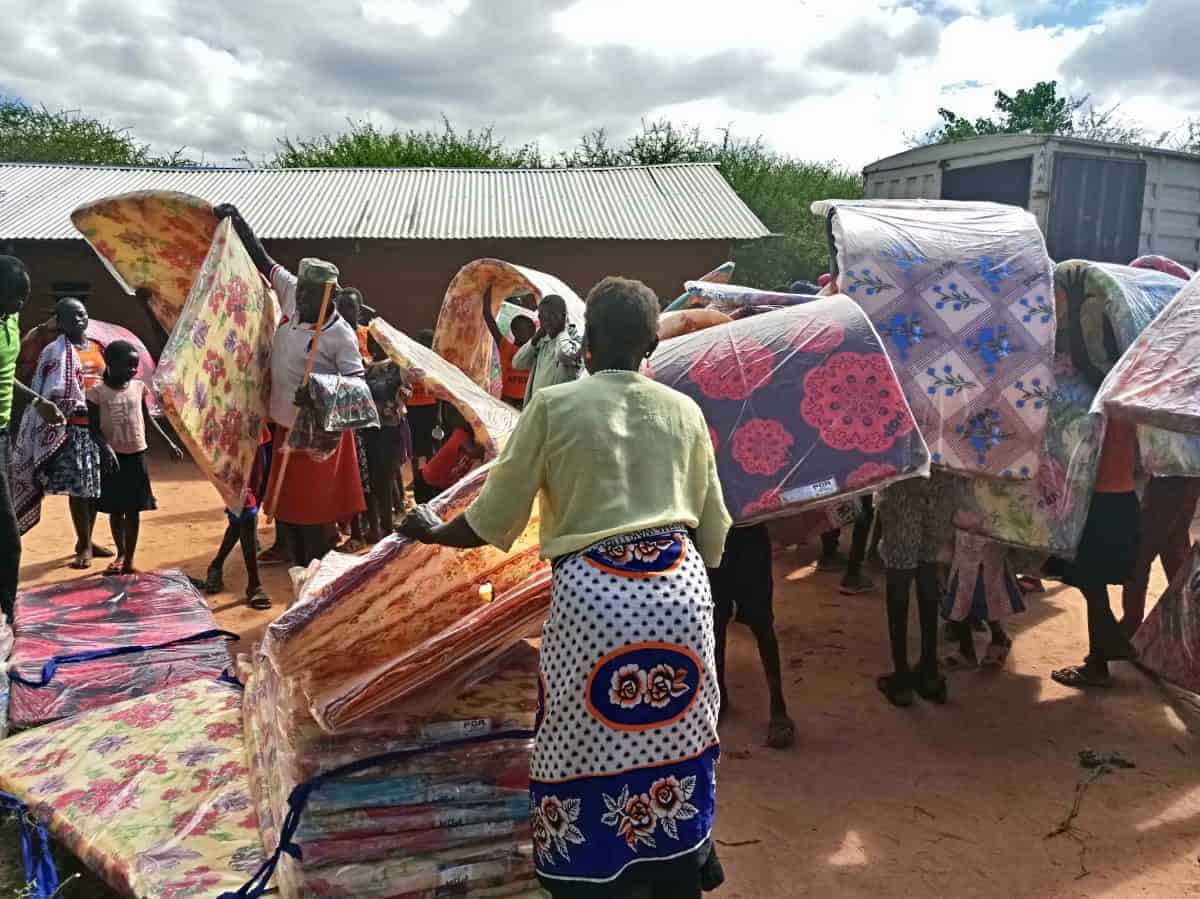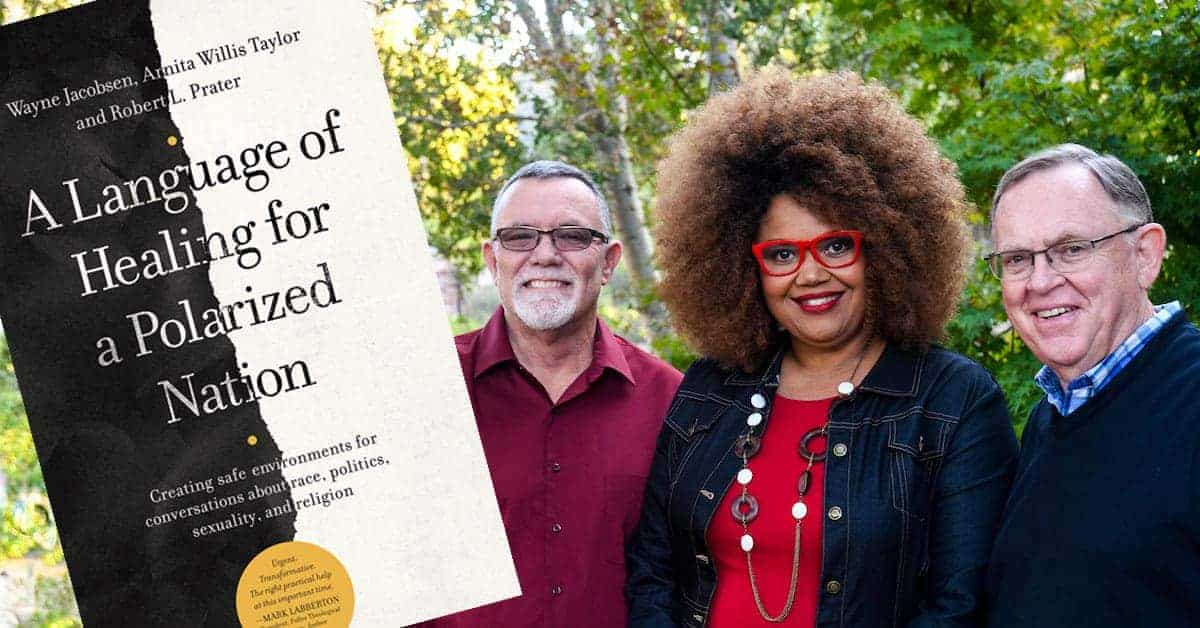Facilitating the Conversations That Matter
A week or so ago, I wrote a blog about The Power of a Conversation. I would say that the vast majority of us have been more impacted by a meaningful conversation than listening to a lecture. I know many people see lectures as more fit for teaching, but honestly I do more effective teaching in conversations these days than I can ever fit into a presentation.
Tomorrow, I’m off for a two-week a swing through Oklahoma, featuring a wide set of conversations, some about the depth of living loved, and others about how to love well in the world. With my latest book out, I now have a set of three books covering the best of what it means to live in the Father’s love—growing in it personally (He Loves Me), finding mutual relationships to stimulate our spiritual growth and to serve others (Finding Church), and how to live with a generous heart in a broken world (A Language of Healing for a Polarized World, which recently became available in audio.)
I received a lot of email about my post regarding conversations. This was one of my favorite because the writer asks a question many of us struggle with:
We’ve been out of the institutional church now since reading Finding Church roughly two years ago and love following the Father this way. We’ve seen such great fruit in our family’s life, as well as with teens (I’m a high school teacher), as we have them over on Fridays for an informal small group/Bible study.
We’ve also occasionally invited others (adults and families) over to our house to simply gather and we have enjoyed it. Yet, we find it so hard not to rely on a “worship time” or a “Teaching Time.” What I wish we could experience are the gatherings that I’ve heard you speak of: people coming together when you’re in town at a house or somewhere, but you don’t do a ‘teaching’ and yet all sorts of Spirit-inspired conversations go on amongst the people there.
We find that when we have others over, people don’t typically discuss spiritual or life issues with each other without being encouraged to do so. Things just stay in the “how are you doing?” and “what’s going with you guys these days?” subjects. Admittedly, even writing it makes me feel a little silly: how can I expect people to have meaningful, God-journey-related conversations without facilitating them? But once I start facilitating, somehow it feels like I am manufacturing an event, which I have done all my life. I suppose what inspired me about your stories of gatherings is that the Spirit seemed to simply move without some teacher-person managing it all.
Do you have any insights for me of where my wife and I might be able to see/do things differently in this?
Here’s how I answered him, if you’re having similar struggles.
I love your hunger and your honesty here. These are great questions. I love them. But, honestly, they are not easy to answer. You already know there’s a way to do it that is life-giving and invites people in to a quality conversation, and there’s an artificial way of doing it that either intimidates people or causes them to check out. The difference between those two is affected both by the person wanting to facilitate it and the people he’s hoping will join that conversation. You don’t really know until you try and then it’s obvious that the offer falls flat, or it didn’t.
I struggled for a long time with this, especially when I was a pastor. When Sara and I would go out with people, we could talk sports, weather, kids, and everyone would be quite animated, but when Jesus stuff came up (if it did) the conversation got awkward and stilted. It seemed that conversation was reserved for “church” meetings or home groups, not the fodder of normal conversation. Still, I think this is worth working through.
The first thing I’d suggest you think about is that people have to be on a Jesus journey to have a lively conversation about it. It can’t be just a religious journey that is compartmentalized into a few hours a week. The more they have a sense of their own trajectory or growing edge, and are exploring their life and circumstances with an eye to what God is doing in them or through them, the easier this will all be to fall into the course of regular conversation. People who have a sense of God in their daily life, are seeking to hear his voice and grow in his ways, are very easy to talk to. Those whose lives are immersed in circumstances without a thought as to God’s part with them, will struggle in this conversation. I don’t look for this kind of robust conversation with people like that. I look for ways to share something from my own life that might encourage them or get them thinking, but hopefully not in a manipulative way or one that expects them to respond in a certain way.
The best conversations start spontaneously out of people sharing a meal together. It’s usually triggered when someone dares to get real and shares something from their own journey that’s meaningful and perhaps even vulnerable. It may be a request for help or prayer, or just something that’s really been weighing on them. It can also happen when someone shares an insight they had, or read something that really made them think. Then other people tag on to it and the conversation begins to go down some deeper paths. I love that best. But notice, even then, someone had the wherewithal to have something on their heart and take the risk to share it. I don’t mind being that person if it doesn’t come from someone else.
This is pretty easy when I travel, because people come ready for that kind of a conversation. They’ve read things I’ve written or heard me say things on podcasts they want to discuss or with questions they have about it. That happens whether I’m in a group or one-on-one.
Finding your way into it with more spontaneous encounters takes some doing and some sensitivity to other people in the room. What are they ready for? What do the relationships allow? That’s why it may be a bit easier to facilitate a recurring group to discuss a book or do a Bible study together. But even in those gatherings, it’s usually the vulnerable sharing that opens the door to something deeper. And even in our past home groups, we got to the place where the conversation around the table was deeper and more relational than the study we started later. That’s when we stopped doing the study and let the better conversations around the table continue.
Let me encourage you to talk to Jesus about this, not for a plan to implement every time, but for something that might be on your heart for the next conversation you’re in. It may be a question to ask, or a vulnerable thing you’re going through, or something you read that inspired you. At our last Christmas dinner I had a wild thought just as we were sitting down to dinner. I made a bit of a game of it, but I said no one could leave the table until they shared an experience from the past year that made them a better person. This was my kids and grandkids, so everybody was ready to jump in. I doubt I could do that at any dinner group. But it opened up the best sharing time we’ve ever had around the table, which also included young children. Later, everyone told me after how much they appreciated it. I did it on a whim, hoping to have a better dialog around our table. You can bet I’ll be thinking that way again next time we get together with something entirely different. I want it to be a blessing to them, not something that feels forced.
That’s why it’s important that people have some relationship first. I think people who want to intentionally share some of their journey together in a regular way, really spend the first few weeks becoming friends, if they aren’t already. Many start having meetings that tend down a religious road of sharing knowledge, rather than a relational one sharing questions and struggles. If they don’t know each other well, then the first thing is to really let people share something from their lives that isn’t too spiritual, but helps others appreciate who they are as a person. Some may go deeper there, but it isn’t necessary to force that. As they get closer, they will be more involved in each other’s lives and questions will flow more readily. And I think it helps if people don’t meet EVERY week. That seems to be our default, but it may be too often. When people feel obligated to attend, or not enough life has passed for there to be fresh insights and struggles, they can grow stale quickly. Some of the best relationships I have don’t try to cross paths every week or two. Some go months between connection, but when we do, there’s no end of things to talk about.
I hope that helps. There’s no magic formula here, just people who desire rich conversations, and are sensitive to when they become forced or artificial.




